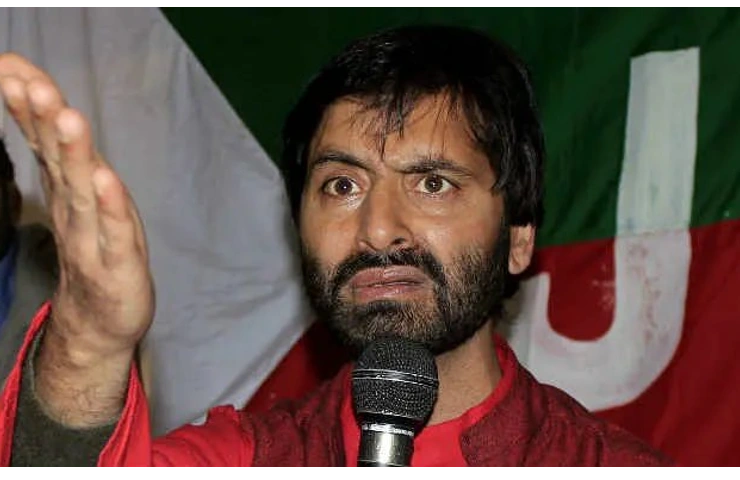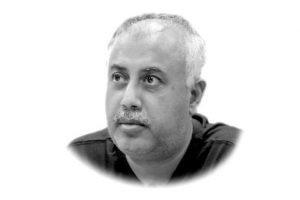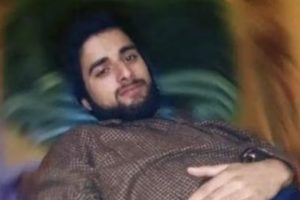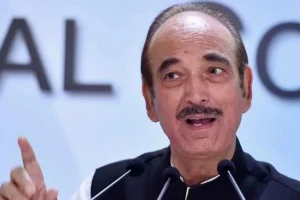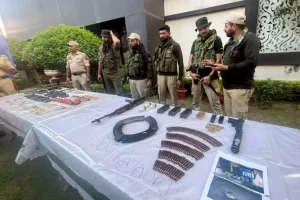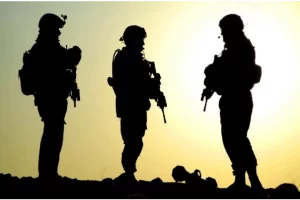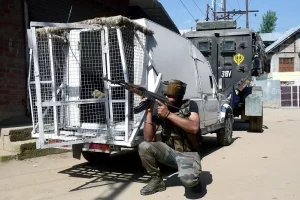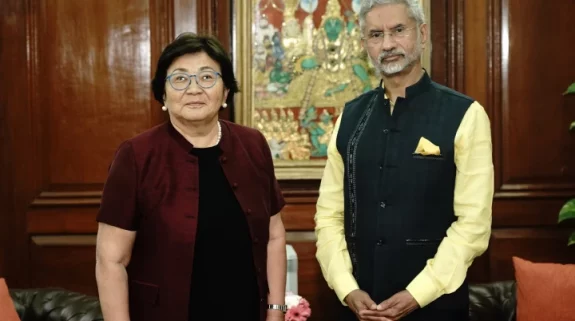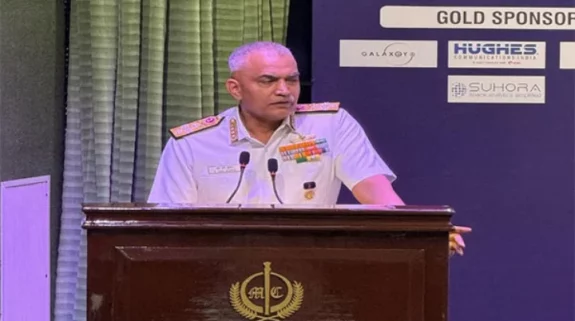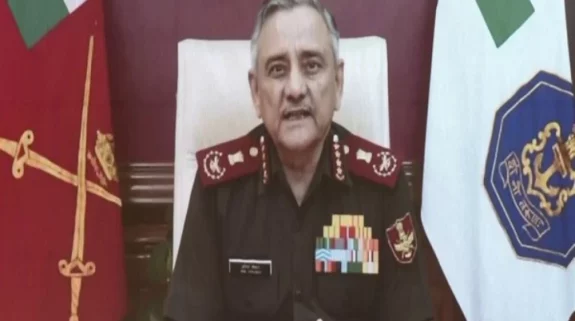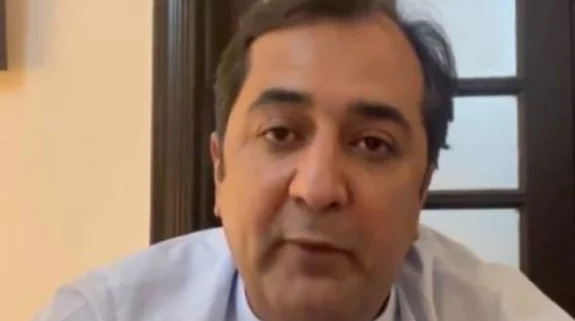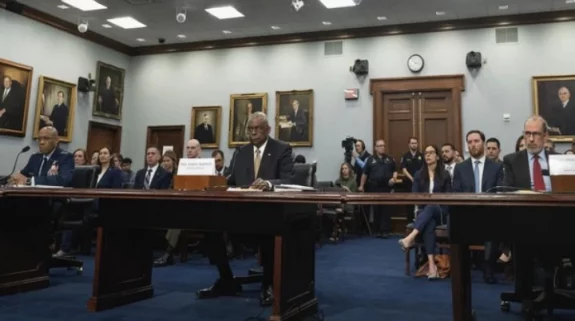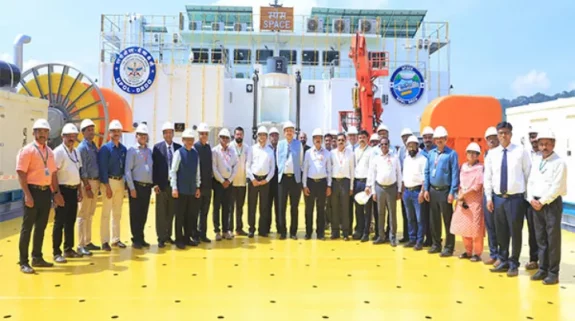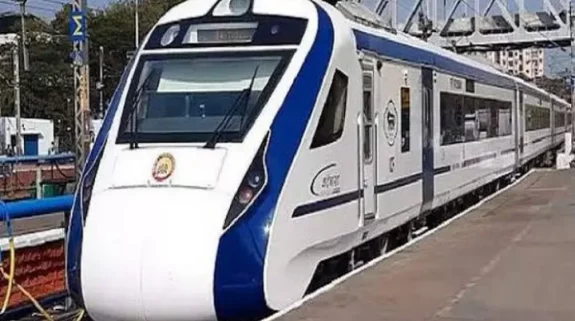In the midst of a worldwide debate over the Pakistan-sponsored terrorism and exodus of the Kashmiri Pandits en masse in 1990, generated by the Bollywood film ‘The Kashmir Files’, a special court for the National Investigation Agency (NIA) cases has ordered framing of charges against some top terrorists and Kashmiri separatists.
Chairman of the outlawed Jammu and Kashmir Liberation Front (JKLF), Yasin Malik, his terror associate of 1990 Farooq Ahmad Dar aka Bitta Karate, who was shown on TV claiming assassination of 20-25 Pandits, poster boy of the 2016 Burhan Wani turmoil, Massarat Alam Bhat, separatist-turned-MLA Sheikh Abdul Rashid aka Engineer Rashid, influential businessman Zahoor Ahmad Shah Watali and the Hizbul Mujahideen chief Mohammad Yousuf Shah aka Syed Salahuddin are among 20-0dd people against whom the court in New Delhi has ordered framing of charges in terror-funding cases on Wednesday.
The other accused against whom charges of involvement in terror-funding are being framed include Pakistan-based jihadist group Lashkar-e-Tayyiba’s patron Hafiz Mohammad Sayeed, separatist hardliner Syed Ali Shah Geelani’s son-in-law Altaf Ahmad Shah aka Altaf Fantoosh and confidant Bashir Ahmad Bhat aka Peer Saifullah, top separatist leaders Shabir Ahmad Shah and Nayeem Khan and former Hizbul chief Aftab Ahmad Shah Hilali aka Shahidul Islam.
Hafiz Saeed and Salahuddin are globally designated terrorists and their organisations, Lashkar-e-Tayyiba and Hizbul Mujahideen, have been declared as outlawed. Yasin Malik’s JKLF, which was banned after the Awantipora blast in which 40 CRPF personnel were killed in 2019, pioneered armed insurgency in J&K in 1988-89. In 1994, Malik declared it as a ‘political organisation’ and JKLF was admitted to the Executive Council of the Hurriyat Conference. After Hurriyat’s split in 2013, JKLF functioned independently as a ‘separatist political party’.
NEW DELHI: A special NIA court has issued non-bailable warrants against Pakistan-based Lashkar-e-Taiba founder Hafiz Saeed and Hizbul Mujahideen chief Syed Salahuddin for their involvement in terror funding activities https://t.co/C4dOrTqe8f pic.twitter.com/lQFSuWTWiC
— JAMMU LINKS NEWS (@JAMMULINKS) November 2, 2018
Malik was declared as JKLF’s ‘chief commander’ after Ashfaq Majid’s death in an encounter in 1990. It was during Majid’s tenure as ‘chief’ that Bitta Karate claimed to have killed 20-25 Pandits. He was, however, released and acquitted by TADA court after 16 years of detention with the observation that the prosecution had shown no interest to establish charges against him.
Allegedly involved in over 60 murder cases, Malik too was released on bail. Two high profile cases—kidnapping of the then Union Home Minister Mufti Mohammad Sayeed’s daughter Rubaiya Sayeed in December 1989 and the killing of four Indian Air Force personnel in January 1990—were investigated and challaned by the Central Bureau of Investigation (CBI) in 1990. In April 2009, J&K High Court’s Srinagar Wing stayed a trial against Malik. Sleeping over the case for 10 years, CBI got the stay vacated only after the Pulwama blast in 2019. Malik was arrested and lodged in Delhi’s Tihar Jail. Since 2019, he and most of the accused in the NIA’s terror funding case are languishing in Tihar Jail.
Businessman Zahoor Watali was known for his Indo-Pakistan political and intelligence connection. PoK’s former Prime Minister Sultan Mehmood Choudhary and then Chief Minister Omar Abdullah attended his children’s marriage in Srinagar.
Centre acts tough on terror funding in J&K; ED attaches Gurugram property of Zahoor Ahmad Shah Watali; who is in Tihar jail on charges of terror funding pic.twitter.com/aE2flMGIiW
— DD News (@DDNewslive) March 24, 2019
Shahidul Islam functioned as the public relations officer of the Hurriyat chairman Mirwaiz Umar Farooq after his release from jail. He allegedly killed 95-year-old veteran Gujjar politician Maulana Masoodi and several others.
Mehbooba demands release of separatist Shahidul Islam, arrested by NIA in 2017@MehboobaMufti#Kashmir #BJP#hurriyatconferencehttps://t.co/dmhWxQf3id pic.twitter.com/SYFtaUGZaE
— United News of India (@uniindianews) January 19, 2019
While Peer Saifullah, late SAS Geelani’s confidant, is the brother of a J&K Police Inspector, Geelani’s son-in-law Altaf Fantoosh allegedly received an amount of Rs 5 crore from the PDP’s youth wing president and then Secretary of J&K Sports Council in 2016. Both are facing terror funding cases of J&K Police and NIA.
Engineer Rashid, formerly a government employee and a leader of late Abdul Gani Lone’s Peoples Conference, contested and won the Assembly elections of 2008 and 2014 as an independent candidate from Langate Handwara. He is known for pro-separatist and pro-terrorist demonstration inside and outside the J&K Assembly.
According to the common belief in J&K, most of these detainees worked as ‘double agents’ with both India and Pakistan and for years they enjoyed a long rope from the Indian intelligence agencies in vilifying, demonising and discrediting the Indian democratic and governance institutions.
The NIA court noted that Er Rashid tried to incite a feeling of disaffection amongst the J&K Police personnel against the Indian Army. Judge Praveen Singh recorded that charges of Rashid’s involvement in boosting stone pelting were prima facie substantial.
It is also to be considered that these are words spoken by a person who was a member of the legislative assembly having a considerable following. This statement in no manner can be said to be discussed as he is not in a discussion and the moment there are threats issued to the police personnel, with the innuendo that Indian armed forces are occupational forces and that there shall be consequences of supporting the Indian army, the accused has crossed the line from advocacy and chartered into the territory of incitement, the court noted.
The judge noted that money for terror funding was sent from and by Pakistan and its agencies and even the diplomatic mission was used to fulfil the evil design. Money for terror funding was also sent by Hafiz Saeed. He noticed that Watali was one of the main conduits for the flow of this terror funding and accused Naval Kishore Kapoor had played an active part in facilitating it.
According to the NIA court, Malik had set up an elaborate structure and mechanism across the world to raise funds for carrying out terrorist and other unlawful activities in Jammu and Kashmir in the name of “freedom struggle”.
The court, however, clarified that its observations in the order were "a prima facie opinion" even as a detailed discussion on the evidence had to be done. The arguments were advanced by both sides in much detail.
According to the NIA, groups like Hizb, Lashkar, Jaish-e-Mohammad and JKLF perpetrated violence in the valley by attacking civilians and security forces with the support of ISI of Pakistan and the Hurriyat Conference was formed to give a political front to secessionist activities.
The NIA charge sheet submitted that the Saeed’s Jammat-ud-Dawah had remained in close contact with the cadres of Hizb, Lashkar and Kashmir-based separatist groups for “raising, receiving and collecting funds domestically and abroad through various illegal channels including hawala”. “They have entered into a larger conspiracy for causing disruption in the valley by way of pelting stones on security forces, systematically burning of schools, damage to public property and waging war against India”, it alleged.






